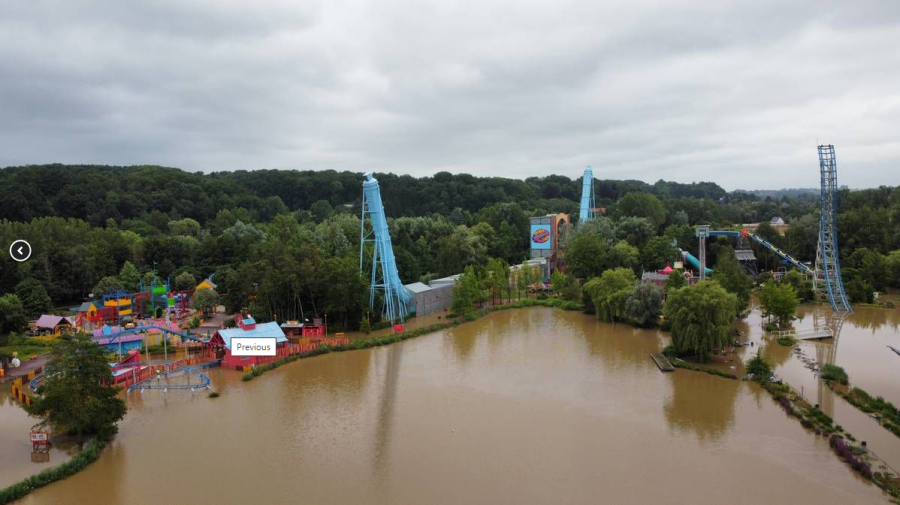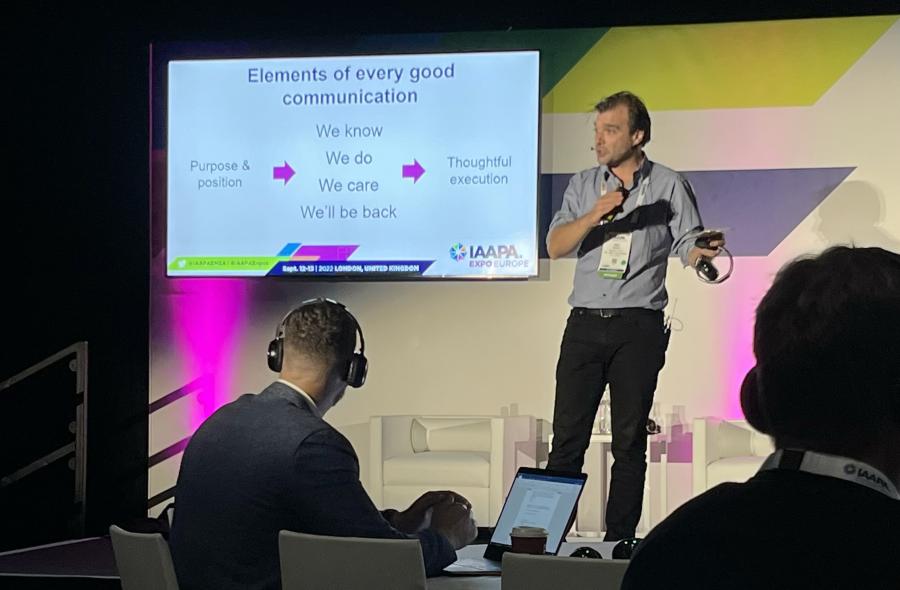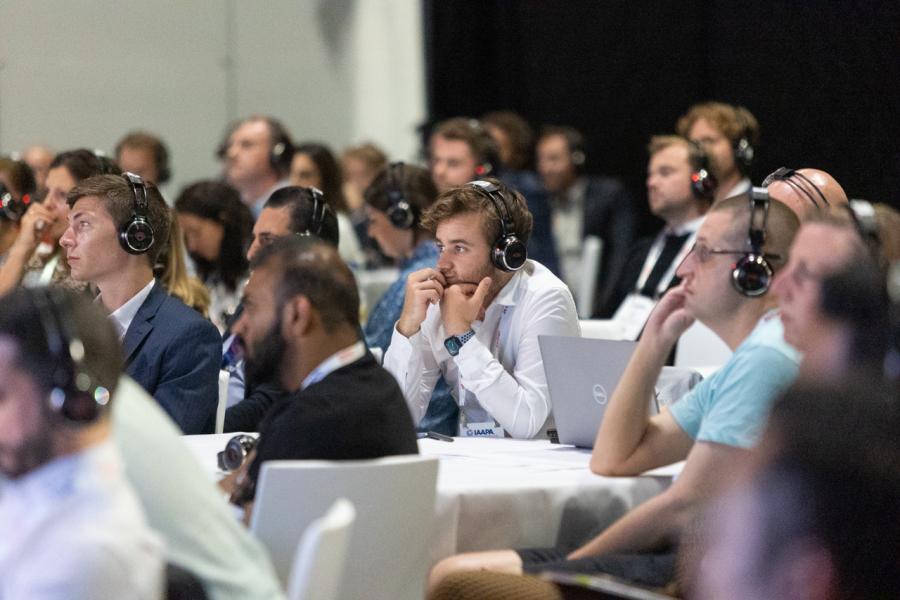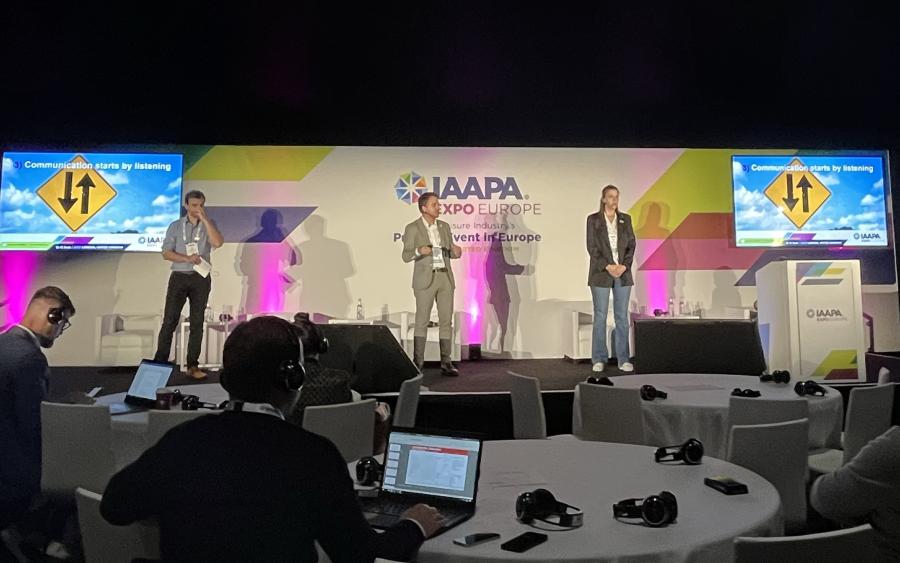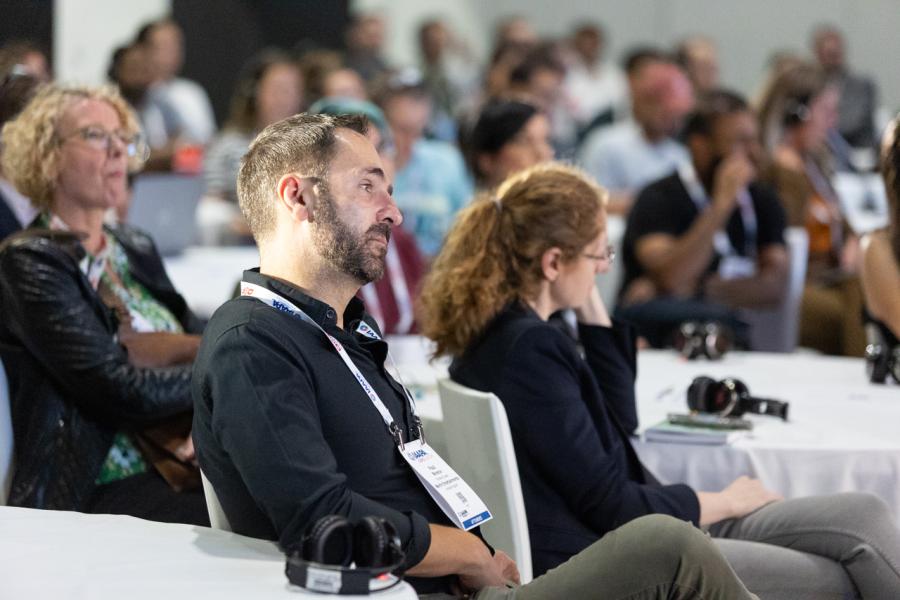On July 15, 2021, severe flooding hit several European countries. One of the regions particularly struck hard by the adverse weather was the Walloon Brabant region in Belgium, home to the Walibi Belgium theme park.
“The park completely flooding is not something that you would ever imagine could possibly happen, but it did,” says Robbert Meulemeester, crisis advisor and strategist at Belgian PM, a consulting firm specializing in crisis management. “Therefore, now is the time to prepare.” Meulemeester underlined the importance of creating an emergency plan during a presentation at IAAPA Expo Europe.
The panel consisting of Stijn Pieters, Managing Partner at PM, and Justien Dewil, Public Relations Officer at Walibi Belgium, presented an insightful seminar on preparing for a crisis. “The ultimate goal of crisis communication is to protect the organization’s continuity, all while keeping the public interest in mind,” Stijn took over. “You have an amount of ‘sympathy capital’ that you can use to do your communication, but you should be wary that you don’t run out of it!”
One key takeaway from the seminar in London is that crisis communication should not be seen as something separate. Rather, it should be an aspect of an attraction’s larger integrated crisis management. Communications professionals could envision the plan as a triangle between:
- Operations and Safety—the departments empowered to make the on-the-spot decisions
- Management and Policy—the parties making decisions during and after the crisis that impact the long term
- Communications—the group that needs to make sure that all information is broadcasted clearly and concisely.
The word “coordination” is important since the plan will not work if the above parties do not touch base with each other.
“For crisis communication to be effective, you often have to deal with the public perception of the crisis rather than the actual reality,” remarks Stijn. “But the most important thing, really, is that you center your attention on those that were affected first instead of the public opinion.” Identify the real concerns of the people touched most severely by the crisis in question and address those in a clear and concise manner.
Proud of her colleagues, but with goosebumps still, Justien at Walibi Belgium unraveled the course of events that started on that dark day in July. “We realized immediately that a special situation like the one we had last year required a different approach,” she started. “As soon as we had the first information—that the park would be closed until further notice—we created a very basic visual to inform our guests as soon as possible,” she explained. “However, our guests soon started asking lots of questions, raising uncertainty. People, understandably, did not know the mess we were actually in.”
It was only after the team at Walibi Belgium shared a heart-breaking picture of a flooded park that the scope of the crisis became clear.
Justien continued by explaining the team at Walibi Belgium wanted to reopen the park as soon as possible. The only way they could safely reopen was by turning the narrative. By switching from a “victim” perspective to that of an “incredibly resilient team”—dedicated to setting up the best Halloween season—Walibi Belgium had a vision to share with guests. They started by posting stories of employees at work: maintenance technicians performing all sorts of repairs; the cleaning teams making sure the park was spic and span; the landscaping team that did an incredible job erasing all traces of the flooding.
“All teams were connected, and the public opinion completely stood on our side,” she proudly says.
Justien told the group it’s always important to express respect for people in the community whose lives were most touched by the adverse events. "Walibi wasn't the largest affected. People in the environment lost their homes, even their lives. We made sure to communicate as much as we needed to…in a respectful manner, since there were people who had it worse.”

